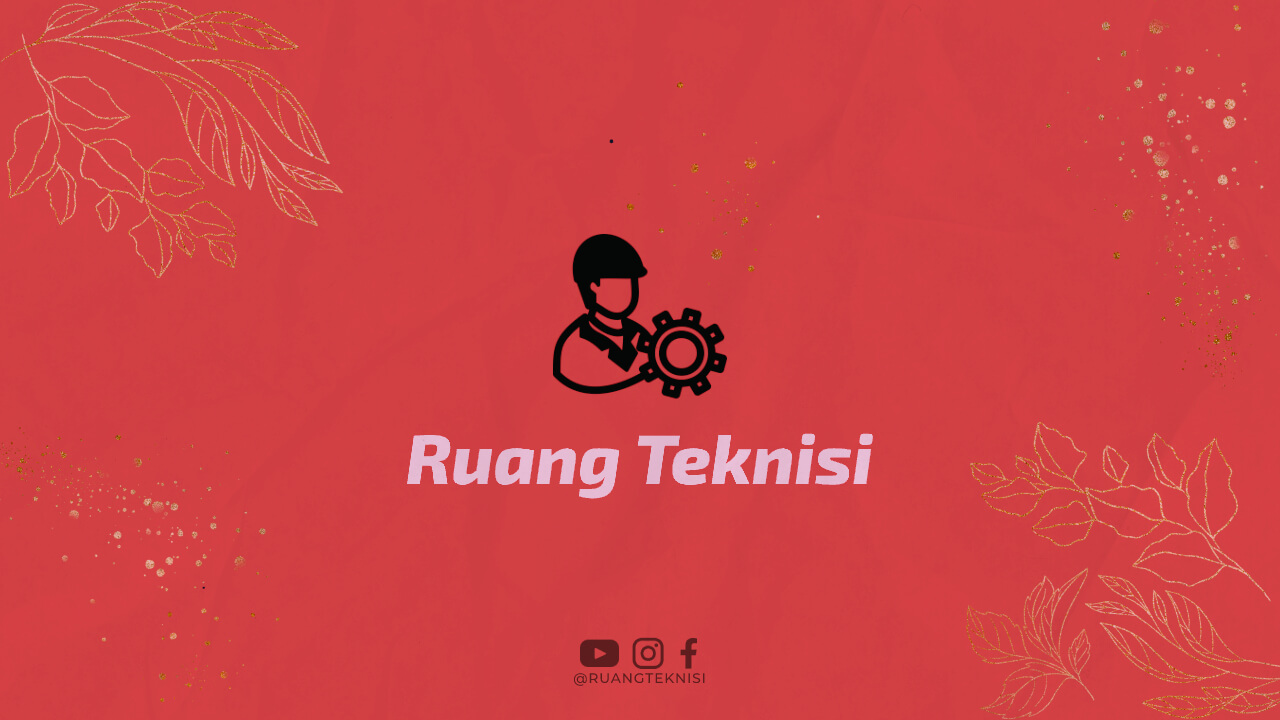Introduction
Getting into a university is a dream for many students around the world. However, the road to higher education often requires passing admission tests. These tests play a crucial role in determining whether an applicant is eligible for admission. In this article, we will provide valuable tips and strategies for university aspirants to navigate through admission tests with confidence.
Understanding the Admission Tests
Before diving into the tips, it is important to have a clear understanding of the admission tests. These tests are designed to assess an applicant’s knowledge, skills, and aptitude in various subjects. They may include sections on mathematics, English, science, and logical reasoning, among others. Each university may have its own specific test format, so it is essential to familiarize yourself with the test pattern and syllabus.
Research the Test Format and Syllabus
Start by researching the specific admission test format and syllabus for the universities you are interested in. Visit the universities’ official websites or contact their admissions offices to obtain accurate information. Understanding the test structure, including the number of sections, time limit, and types of questions, will allow you to tailor your preparation accordingly.
Identify the Weightage of Each Section
While preparing for admission tests, it is crucial to identify the weightage of each section. Some tests may assign more marks to certain subjects or skills than others. By understanding the weightage, you can allocate your study time effectively and prioritize areas that hold greater significance.
Review Past Test Papers
One of the most effective ways to familiarize yourself with the admission test is by reviewing past test papers. These papers provide insight into the types of questions asked, the difficulty level, and the overall structure of the test. Analyzing and practicing with past papers will give you a realistic idea of what to expect and help you identify areas that require more attention.
Start Early and Create a Study Plan
Preparation is the key to success in any exam, and admission tests are no exception. Begin your preparation well in advance to allow ample time for thorough studying. Create a study plan that outlines your goals, study hours, and subjects to cover. This will help you stay organized and motivated throughout the preparation process.
Break Down Your Study Plan
Divide your study plan into smaller, manageable tasks. Set specific goals for each study session, such as completing a certain number of chapters or solving a particular set of practice questions. Breaking down your study plan will make it less overwhelming and easier to track your progress.
Allocate Time for Each Subject
Allocate dedicated time for each subject based on its weightage and your proficiency level. Give more time to subjects that you find challenging and less time to those you are already comfortable with. Ensure that you have a balanced approach and cover all the necessary topics within the given timeframe.
Create a Realistic Study Schedule
Design a realistic study schedule that takes into account your daily routine, commitments, and energy levels. Consider whether you are more productive in the morning or evening and allocate your study hours accordingly. Be mindful of taking breaks during long study sessions to avoid burnout and maintain focus.
Set Milestones and Targets
Set milestones and targets within your study plan to keep yourself motivated and track your progress. For example, aim to complete a certain number of chapters or achieve a specific score in practice tests by a certain date. Celebrate each milestone you achieve, as it will boost your confidence and help you stay dedicated to your goals.
Gather Study Materials
Collecting relevant study materials is essential for effective preparation. Here are some tips to help you gather the right resources:
Research Recommended Textbooks
Check if the universities you are applying to recommend specific textbooks for the admission test. These textbooks are often aligned with the test syllabus and provide comprehensive coverage of the required topics. Investing in recommended textbooks can greatly enhance your understanding and knowledge base.
Seek Online Resources and E-books
In addition to textbooks, explore online resources and e-books that are specifically designed for admission test preparation. Many reputable websites and platforms offer free or paid study materials, practice questions, and sample papers. These resources can provide additional explanations, practice opportunities, and alternative approaches to understanding difficult concepts.
Join Test Preparation Courses
Consider enrolling in test preparation courses offered by coaching centers, online platforms, or educational institutions. These courses are designed to provide structured guidance, expert tips, and comprehensive study materials tailored to the specific admission test. Joining a course can be particularly beneficial if you prefer a more guided and systematic approach to studying.
Connect with Peers and Alumni
Reach out to current university students or alumni who have already taken the admission test you are preparing for. They can provide valuable insights, recommended study materials, and tips based on their personal experiences. Social media groups, forums, and university alumni networks are great platforms to connect with such individuals.
Focus on Weak Areas
Identify your weak areas and dedicate more time to improving them. By focusing on your weaknesses, you can gradually strengthen your overall performance. Seek guidance from teachers or tutors if needed, and practice specific topics or concepts until you feel confident.
Conduct a Self-Assessment
Begin by conducting a self-assessment to identify the subjects or topics where you struggle the most. Evaluate your performance in practice tests, mock exams, or previous academic records. This self-awareness will help you understand your weaknesses and develop a targeted approach to improve them.
Seek Additional Help
If you find certain topics particularly challenging, don’t hesitate to seek additional help. Reach out to subject teachers, academic mentors, or tutors who can provide personalized guidance and support. They can clarify concepts, provide alternate explanations, and offer practice materials to help you improve in your weak areas.
Utilize Online Learning Platforms
Take advantage of online learning platforms that offer interactive lessons, video tutorials, and practice exercises. These platforms often provide personalized learning paths based on your strengths and weaknesses. By utilizing these resources, you can reinforce your understanding of difficult concepts and track your progress.
Create a Revision Strategy
Develop a revision strategy that focuses on your weak areas. Allocate specific time slots for revisiting and practicing these topics regularly. Use flashcards, mnemonic techniques, or visual aids to aid memorization. Continuous revision and practice will help you gain confidence and improve your performance in these challenging areas.
Practice Regularly
Consistent practice is vital for success in admission tests. Set aside time each day for practice sessions. Solve sample papers, take online quizzes, and attempt previous years’ question papers to familiarize yourself with the test format. Regular practice will not only improve your speed and accuracy but also boost your confidence.
Start with Basic Concepts
Begin your practice sessions by revisiting and solidifying your understanding of basic concepts. Ensure that you have a strong foundation in the fundamental principles of each subject. This will enable you to tackle more complex questions with ease and accuracy.
Gradually Increase Difficulty Level
As you gain confidence, gradually increase the difficulty level of the practice questions. Challenge yourself with higher-level problems and questions that require critical thinking and problem-solving skills. This will prepare you for the diverse range of questions you may encounter in the actual admission test.
Simulate Test Conditions
To familiarize yourself with the test environment, simulate test conditions during your practice sessions. Sit in a quiet room, adhere to the time limits, and avoid distractions. By replicating the actual test conditions, you can develop a sense of composure and adaptability, ensuring optimal performance during the real test.
Analyze Mistakes and Learn from Them
Take the time to analyze your mistakes in practice tests and identify the underlying reasons. Look for patterns or recurring errors in your responses. By understanding your mistakes, you can learn from them and avoid making similar errors in the future. This analytical approach will help you refine your strategies and enhance your problem-solving skills.
Develop Time Management Skills
During the actual admission test, time management is crucial. Develop effective time management skills by practicing under timed conditions. Solve questions within the allotted time frame to get accustomed to the test’s pace. This will help you avoid panic and complete the test within the given time limit.
Understand the Time Constraints
Before attempting any practice test, familiarize yourself with the time constraints for each section. Understand the average time you should allocate to each question or problem. This will help you gauge the level of detail required in your responses and ensure that you complete all questions within the given timeframe.
Practice Time-Tracking Techniques
Practice time-tracking techniques during your study sessions and mock exams. Use a stopwatch or timer to monitor the time you spend on each question. This will help you develop a sense of timing and allocate your time more efficiently during the actual test. Remember to strike a balance between accuracy and speed.
Utilize Skimming and Scanning Techniques
Utilize Skimming and Scanning Techniques
Skimming and scanning techniques can be invaluable when managing time during the test. Skim through passages or questions to get a general idea of the content before diving into the details. Use scanning to quickly locate specific information or keywords within a passage. These techniques can help you save time and focus on the most relevant parts of the test.
Prioritize Questions
Not all questions in the test will have the same level of difficulty. As you read through the questions, identify the ones that you find easier or can answer quickly. Prioritize these questions, answering them first to ensure that you secure those marks. This strategy will give you more time to spend on the challenging questions without compromising on the easier ones.
Manage Time for Each Section
Divide your time strategically for each section based on its complexity and the number of questions. Set mental time benchmarks for each part of the test to ensure that you stay on track. If you encounter a particularly difficult question, it may be better to skip it temporarily and return to it later, rather than spending too much time on it and jeopardizing the completion of other questions.
Improve Reading and Comprehension Skills
Reading and comprehension skills are essential for performing well in admission tests. Develop a habit of reading newspapers, magazines, and books regularly. This will improve your vocabulary, reading speed, and understanding of complex passages. Practice answering comprehension-based questions to enhance your comprehension skills further.
Read Diverse Materials
Expose yourself to a wide range of reading materials to improve your reading and comprehension skills. Read articles, essays, and books from various genres and subjects. This will help you become familiar with different writing styles, increase your vocabulary, and develop the ability to understand and analyze complex information.
Annotate and Summarize
When reading, make it a habit to annotate important points, highlight key ideas, and summarize the content in your own words. This active reading technique will improve your understanding and retention of the material. It will also help you recall information more effectively during the test and when answering comprehension-based questions.
Practice Speed Reading Techniques
Speed reading techniques can significantly enhance your reading speed without sacrificing comprehension. Practice techniques such as using a pointer (e.g., your finger or a pen) to guide your eyes along the text, focusing on groups of words rather than individual words, and minimizing subvocalization (pronouncing words in your mind). Regular practice will help you read faster and absorb information more efficiently.
Solve Comprehension Exercises
To improve your comprehension skills, regularly solve exercises that focus on reading comprehension. These exercises typically include passages followed by questions that assess your understanding of the text. Practice answering different types of questions, such as finding the main idea, identifying supporting details, making inferences, and drawing conclusions. This will sharpen your ability to comprehend and analyze written information.
Enhance Analytical and Critical Thinking
Admission tests often include sections that assess analytical and critical thinking abilities. To excel in these areas, practice solving puzzles, brainteasers, and logical reasoning questions. Enhancing your analytical and critical thinking skills will enable you to approach questions strategically and arrive at logical conclusions.
Engage in Problem-Solving Activities
Engage in activities that require problem-solving skills, such as puzzles, crosswords, Sudoku, or logic games. These activities challenge your mind, improve your analytical thinking, and enhance your ability to approach complex problems. Regularly incorporating such activities into your study routine will sharpen your problem-solving skills and boost your overall cognitive abilities.
Practice Logical Reasoning Questions
Logical reasoning questions are common in admission tests. These questions require you to analyze relationships, identify patterns, and draw logical conclusions. Practice solving different types of logical reasoning questions, such as syllogisms, analogies, and deductive reasoning. This will train your mind to think critically and make logical connections quickly and accurately.
Develop a Systematic Approach
When faced with complex problems or analytical questions, develop a systematic approach to tackle them. Break down the problem into smaller parts, analyze each component, and consider different perspectives. Apply logical frameworks or diagrams, such as flowcharts or Venn diagrams, to organize your thoughts and streamline your reasoning process.
Challenge Assumptions and Evaluate Evidence
Critical thinking involves challenging assumptions and evaluating evidence objectively. Practice questioning the underlying assumptions in arguments or statements. Evaluate the reliability and validity of the evidence presented. By honing these skills, you can discern logical fallacies, strengthen your arguments, and approach questions from a more informed and analytical standpoint.
Take Mock Tests
Mock tests simulate the actual test environment and are invaluable for self-assessment. Take advantage of online platforms or coaching centers that offer mock tests specifically designed for admission tests. Analyze your performance, identify areas for improvement, and work on them accordingly.
Simulate Real Test Conditions
When taking a mock test, simulate the real test conditions as closely as possible. Find a quiet place, switch off distractions, and strictly adhere to the time limits. Use the same materials and resources that will be permitted during the actual test. By replicating the test environment, you can better assess your readiness and identify any areas of weakness.
Review and Analyze Your Performance
After completing a mock test, review your performance in detail. Analyze the questions you answered incorrectly or struggled with. Identify the reasons behind your mistakes, whether it was due to a lack of understanding, time management issues, or misinterpretation of the question. This analysis will guide your future preparation and help you focus on improving specific areas.
Identify Patterns and Trends
Look for patterns or trends in your performance across multiple mock tests. Identify recurring mistakes or weaknesses in certain sections or question types. Pinpoint areas where you consistently score low and areas where you excel. This analysis will enable you to adjust your study plan and allocate more time and effort to areas that require improvement.
Use Mock Tests for Time Management Practice
Mock tests are an excellent opportunity to practice time management strategies. Monitor your time during the mock test and assess whether you are able to complete all the questions within the allocated time. If you consistently struggle with time, adjust your approach, such as spending less time on individual questions or practicing speed reading techniques to improve your efficiency.
Manage Stress and Stay Positive
Admission tests can be stressful, but it’s important to manage stress effectively. Practice relaxation techniques like deep breathing or meditation to stay calm during preparation and on the day of the test. Maintain a positive mindset, believe in your abilities, and stay focused on your goals.
Develop a Stress Management Routine
Incorporate stress management techniques into your daily routine to keep stress at bay. Engage in activities that help you relax and unwind, such as listening to music, going for walks, or practicing mindfulness. Prioritize self-care, including a healthy diet, regular exercise, and sufficient sleep. A well-rested and relaxed mind will enable you to perform better in the test.
Visualize Success
Visualize yourself succeeding in the admission test and achieving your desired results. Create a mental image of confidently answering questions, staying focused, and feeling a sense of accomplishment. Positive visualization can help reduce anxiety, boost self-confidence, and improve overall performance.
Avoid Last-Minute Cramming
While it’s important to revise before the test, avoid cramming or studying intensely the night before. This can lead to added stress and may interfere with your ability to recall information effectively. Instead, use the day before the test to relax, engage in light review, and ensure you get a good night’s sleep.
Stay Positive and Believe in Yourself
Maintain a positive mindset throughout your preparation and during the test. Believe in your abilities and trust the effort you have put into your studies. Self-doubt can hinder your performance, so replace negative thoughts with positive affirmations. Remember that admission tests are just one aspect of your overall profile, and your worth as a student goes beyond a single test score.
Conclusion
Successfully navigating admission tests requires dedication, perseverance, and a well-planned approach. By starting early, gathering study materials, practicing regularly, and focusing on weak areas, you can enhance your chances of achieving a high score. Remember to manage your time effectively, improve your reading and comprehension skills, and develop analytical thinking. Finally, stay positive, manage stress, and believe in yourself. With these tips in mind, you are well on your way to conquering admission tests and securing a spot at your dream university.




